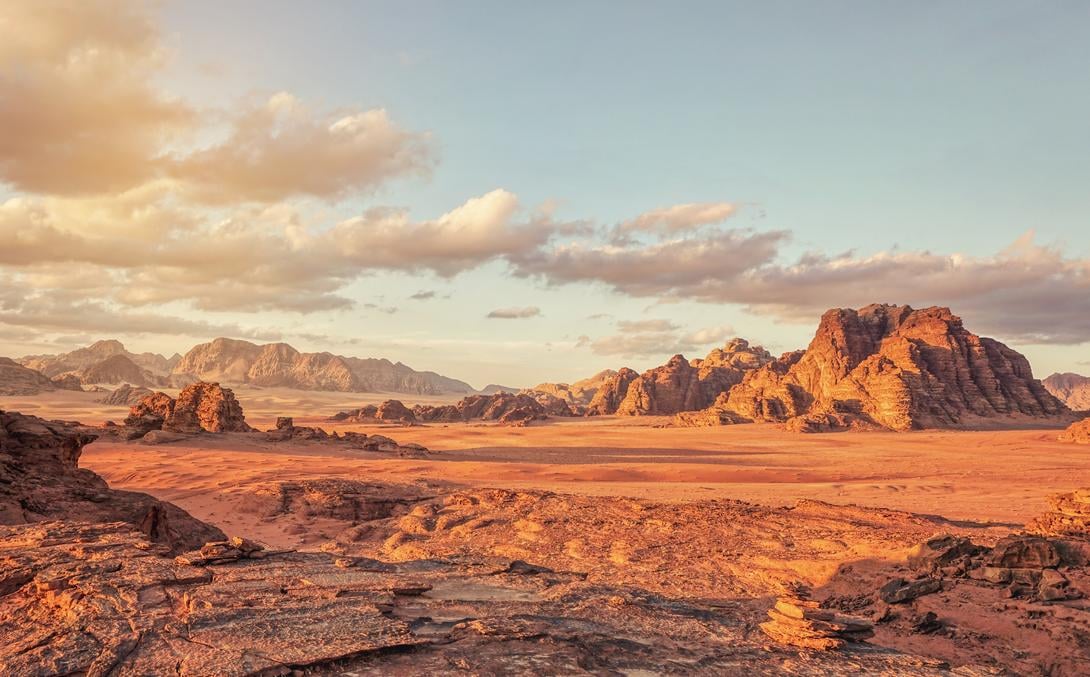Explore ancient wonders, breathtaking landscapes, and vibrant culture with a trip to Jordan.
In the heart of the Middle East, Jordan stands as a land of captivating contrasts and exceptional natural beauty. Surrounded by countries like Iraq, Syria, Saudi Arabia, and Israel, Jordan's diverse landscape offers a multitude of experiences for travellers.
Jordan Tours are an incredible way to explore this amazing nation. From the spellbinding ruins of Petra, a UNESCO World Heritage site, to the surreal deserts of Wadi Rum, where you can step into otherworldly landscapes, Jordan promises a journey through time and wonder. Explore ancient Nabatean cities, Roman archaeological sites, and Crusader castles. Experience the dramatic canyons and winding wadis that tell stories of Jordan history and nature intertwined.
Beyond these natural wonders, Jordan's cities, like the bustling capital, Amman, and the tranquil coastal town of Aqaba, provide a harmonious blend of modern life and tradition. You'll encounter the warm embrace of Jordanian hospitality as you savour the local cuisine, immerse yourself in lively markets, and unravel the tales behind ancient architectural wonders.
Jordan invites you to join us on a voyage of exploration and amazement as we reveal the secrets and splendour of this captivating nation.
Population
11,344,046Languages
ArabicCurrency
Jordanian Dinar (JOD)Capital
AmmanVacations, Tours, & Travel Packages
Places To Go
Handcrafted journeys to our most popular places to visit in Jordan
Jordan: A journey into history and wonder
Ancient wonders and breathtaking landscapes define Jordan. Explore the lost city of Petra, traverse the Martian-like terrain of Wadi Rum, and dive into the crystal-clear waters of the Red Sea. A rich history and vibrant culture await in Amman and Aqaba. With its captivating blend of the ancient and modern, Jordan offers an adventure like no other.

Travel Stories
Get inspired about Your Trip to Jordan
Destination Specialists
The Experts in Tailor-Made Travel to Jordan
When working with Goway, you dream it, we plan it. Rely on the passion and expertise of our Destination Specialists to craft the trip that’s right for you.












